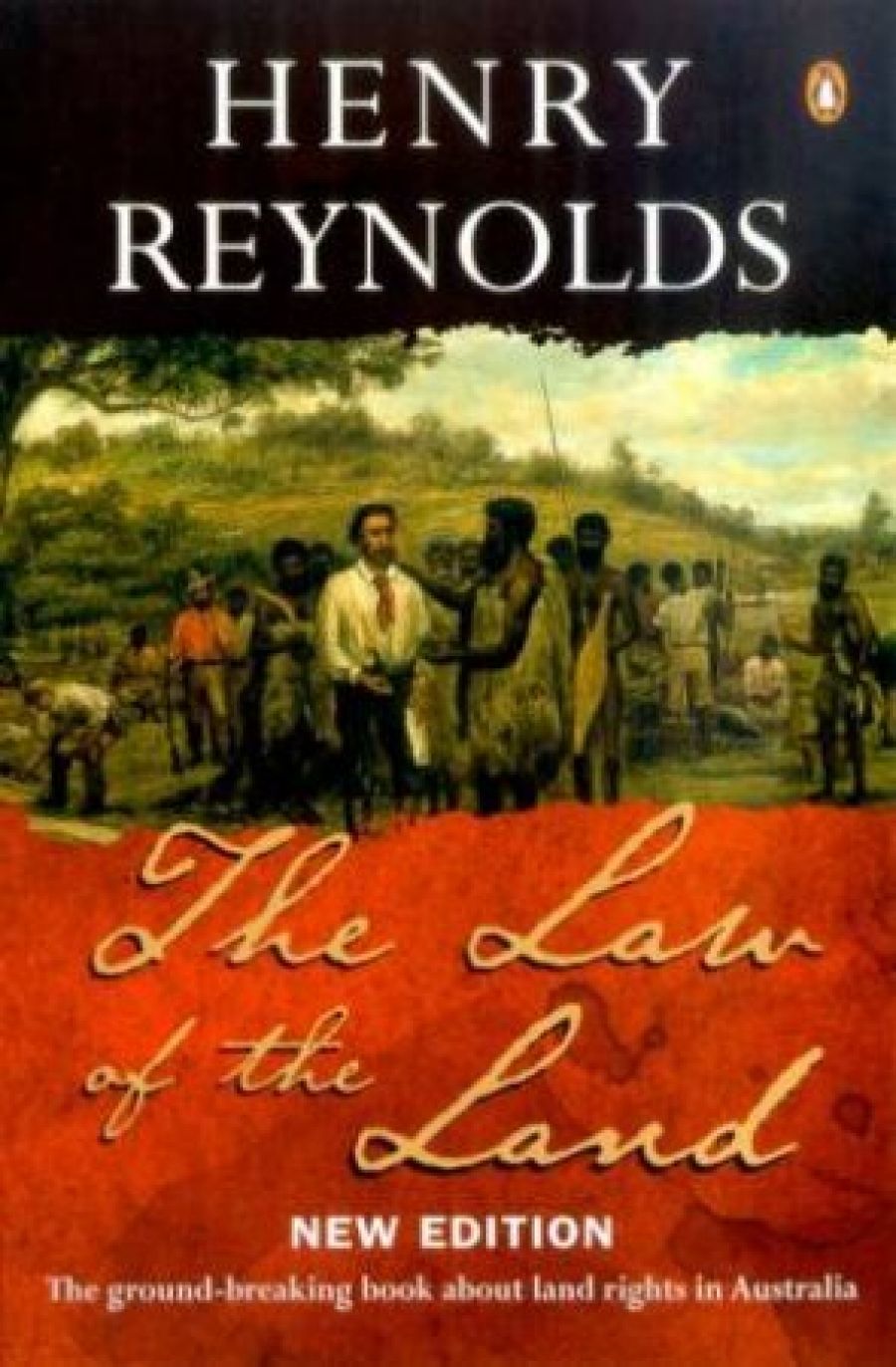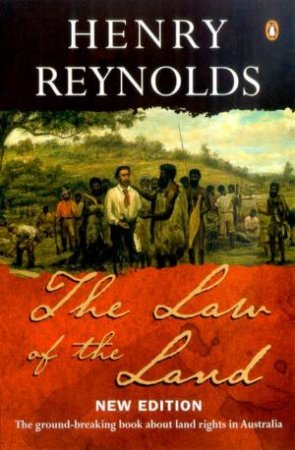
- Free Article: No
- Contents Category: Politics
- Review Article: Yes
- Article Title: Wrong law for the wrong land
- Online Only: No
- Custom Highlight Text:
Less than a week after the publication of this book, the federal government gave notice that it intended to give legislative recognition to its major thrust – that is, the government said it would acknowledge that Australia’s aborigines once owned Australia.
- Book 1 Title: The Law of the Land
- Book 1 Biblio: Penguin, $12.95 pb, 225 pp
- Book 1 Cover Small (400 x 600):

- Book 1 Cover (800 x 1200):

‘Until now, no government has been prepared to concede the fact of prior Aboriginal occupation and ownership of the kind that now constitutes Australia. Politically, it is only since the passage of the referendum in 1967 which changed the Constitution to allow Aboriginals to even be counted as part of the Australian population, and which also gave the Commonwealth Parliament power to make special laws affecting Aboriginals, that any kind of Aboriginal ‘rights’ have been acknowledged. Legally, the prior claims of Aboriginals to land have been denied by the courts. Land claims arc allowed only through the passage of special laws which create possible rights to limited (though in some places such as the Northern Territory and South Australia, very large) tracts of land. The law has denied the fact of prior Aboriginal occupation and ownership of land.
In the introduction to his book. Professor Henry Reynolds states that the ‘truly amazing achievement of Australian jurisprudence was to deny that the Aborigines were ever in possession of their own land, robbing them of the great legal strength of that position and of the compensation which should have been paid following resumption by the Crown.’ (p.2) He states that the ‘intellectual and moral gymnastics required to sustain that position have been quite extraordinary.’ (p.2)
The book is in part an explanation of the way in which the law (and the politicians) managed to achieve that denial of the aboriginal birthright in their own land. It is also a book about the rewriting of history over the period of European occupation to help provide the ‘factual’, moral and political underpinning for that legal stance.
What Professor Reynolds shows is that the original colonists were very conscious of the Aboriginal occupation and ownership of the land of which they were trying to take possession. The claim to sovereignty of the eastern half of Australia by a few thousand people in the face of its occupation by a million aboriginals had little or no basis in the common law of England at the time. It depended on the claim that the land was ‘terra nullius’ – that it belonged to no-one. But while there may have been no sovereign power exercising dominion over the nation, this did not entitle the European power to deny the land claims of its possessors, the aboriginals.
Professor Reynolds examines the legal doctrines of European and English law of the 18th and 19th centuries and provides some of the factual bases for determining what rights should have been recognised. He also examines the political movements in Britain in the mid-19th century which should have resulted in the recognition of Aboriginal title to land by the time of the settlement of South Australia. That development was frustrated by the people whose commercial interest it was to colonise South Australia. Throughout, he is concerned to demonstrate the faulty factual and legal basis underlying the judgment of justice (later Sir Richard) Blackburn in the Gove Land Rights case in 1971. That case decided that the common law in Australia did not recognise, and never had, any prior native title to land. Subsequently, courts in New Zealand and Canada have decided differently and some lawyers believe the High Court could overturn the Blackburn decision. This book will provide many clues to the basic material and evidence which would be needed to achieve that reversal of the law.
It should also provide material for thought for the general community which has accepted the myths which deny Aboriginals any rights to this land. Perhaps the most pervasive of those myths is that the Aborigines did not deserve to keep their land because they would not fight for it. In fact 20,000 to 30,000 died during the European invasion. Aborigines were conquered but that, in law, was no reason to deny them rights to their land.
The Commonwealth Government’s recognition of prior native ownership will not be accepted by the community at large without the backing of exercises such as this fascinating piece of historical research by Professor Reynolds. The book docs what it claims to do: it challenges the legal and moral assumptions underlying the European occupation of Aboriginal Australia.


Comments powered by CComment